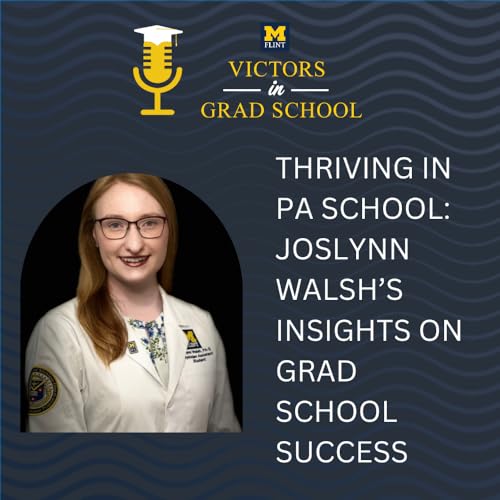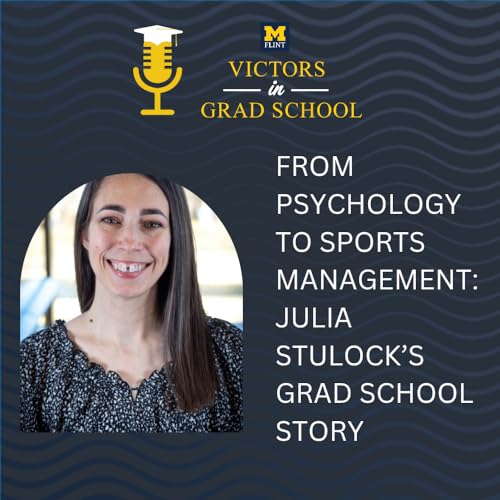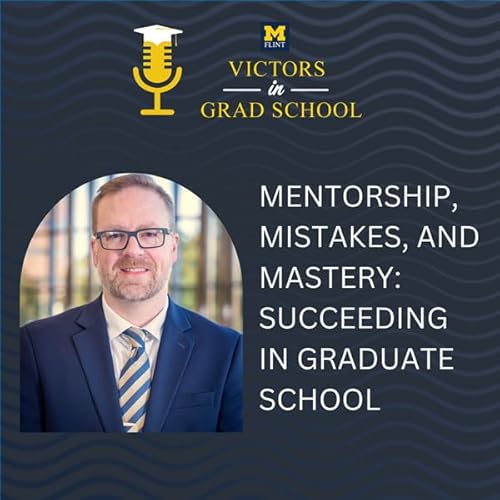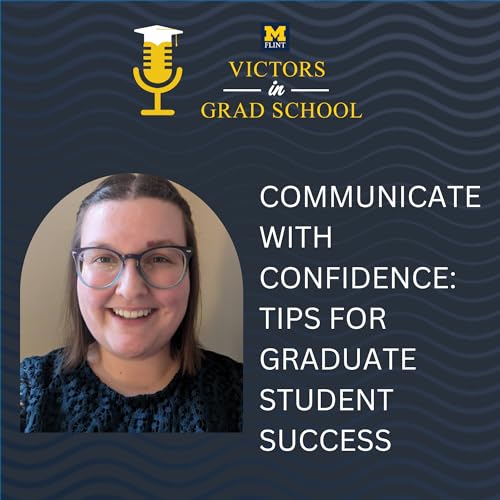Graduate school can be an overwhelming journey, filled with big decisions, self-doubt, and transformation. In the latest episode of the "Victors in Grad School" podcast, Dr. Christopher Lewis welcomes Julia Stulock, Director of Recreational Services at the University of Michigan-Flint, to share her unique path from psychology undergraduate to sports management graduate student. If you're considering grad school, currently navigating your studies, or simply looking for inspiration, Julia's story is a must-hear. She opens up about how her undergraduate experience prepared her well—often in surprising ways—for the academic rigor ahead. As a commuter student at UM-Dearborn, Julia always thought she'd go into research or become a professor, but her campus involvement revealed an entirely new career path in collegiate recreation. This episode underscores the value of staying open to new opportunities and following where your interests lead. One of the central themes is the importance of choosing the right graduate program. Julia encourages prospective students to consider not just the academic aspects, but also location, assistantship opportunities, and overall fit. Her experience at the University of Connecticut was shaped not only by a robust sports management curriculum but by a graduate assistantship that paid for her school and provided a stipend—a key piece of advice for future applicants. Listeners will also appreciate Julia's candid discussion about the challenges of transitioning to graduate study: balancing school and work, adjusting to new expectations, and handling imposter syndrome. She highlights how building connections—through clubs, professional organizations, and classmate relationships—is essential for both emotional support and professional development. Her story is a reminder that community matters, and finding your people can make all the difference during tough times. Julia's advice is both practical and heartfelt: don't be afraid to try something new, take calculated risks, and seek out opportunities, even if they seem outside your comfort zone. Graduate school, she says, is "where I found my passion," and recommends reaching beyond the classroom to maximize your growth. Tune in to this episode to hear Julia's reflections on how graduate school changed her approach to problem-solving and time management, and learn what she wishes someone had told her before she started. For anyone at any stage of their academic journey, Julia's story is a powerful reminder that success often comes from embracing change, building connections, and following your passion. Ready for more inspiring stories and essential advice about thriving in graduate school? Listen to the full episode now! TRANSCRIPT Dr. Christopher Lewis [00:00:01]: Welcome to Victors in Grad School, where we have conversations with students, alumni, and experts about what it takes to find success in graduate school. Dr. Christopher Lewis [00:00:11]: Welcome back to Victors in Grad School. I'm your host, Dr. Christopher Lewis, Director of Graduate Programs at the University of Michigan, Flint. Really excited to have you back again this week. And as always, every week, I love being able to be on this journey with you because it is a journey not no matter where you are in this continuum of looking at graduate school, maybe you're at the very beginning and just starting to think about, should I do this? Maybe I should, maybe I shouldn't, or maybe you've applied, waiting on that applicant that, that decision from your application, or maybe you just got accepted, or maybe you're in graduate school. No matter where you are, you are on a true journey. And this journey can go in many different directions. But this podcast is here to give you some tools for your toolbox to help you to be able to figure things out ahead of time, to give you some tools for the toolbox to help you figure out how to find success sooner. Dr. Christopher Lewis [00:01:03]: Because that's what we all want. We all want to be successful in this academic journey that you're on. And whether it be from me, from a person in charge of graduate programs, I want all of my graduate students to be successful in this journey that they're pursuing. But personally, you do, too. And that's why every week, I love being able to bring you different people with different experiences that can share some of their own experiences in going through graduate school that can help you along the way. Today we got another great guest with us. Julia Stulock is with us. And Julia is the Director of Recreational Services at the University of Michigan, Flint, and she did her undergraduate work at the University of Michigan, Dearborn and then went on from there. Dr. Christopher Lewis [00:01:46]: So I'm really excited to be able to talk to her about her own experiences and to have her share that with you. Julia, thanks so much for being here today. Julia Stulock [00:01:53]: Yeah, really happy ...
Show More
Show Less
 23 mins
23 mins 18 mins
18 mins 23 mins
23 mins 17 mins
17 mins 23 mins
23 mins 20 mins
20 mins 25 mins
25 mins 47 mins
47 mins
